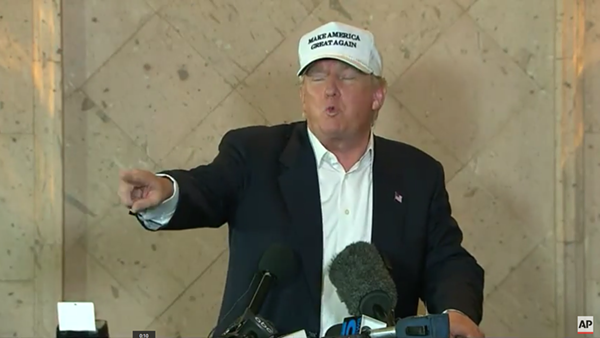John Cornyn knows how the U.S. Senate functions.
He’s been serving there for some time now as a Republican from Texas.
His whipper-snapper colleague, fellow Republican Ted Cruz, doesn’t know how it works quite so well.
Accordingly, Cornyn took Cruz to task for the attack he leveled at Senate Majority Leader Mitch McConnell. Cruz did so in a speech on the Senate floor in which he called McConnell a liar.
http://www.texastribune.org/2015/07/26/cruz-and-cornyn-engage-senate-floor/
McConnell had allowed a vote on the Export-Import Bank, which Cruz and some other Senate conservatives want to eliminate. McConnell, R-Ky., allegedly had promised that a vote wouldn’t occur. Cruz took him to task for it and then decided to say out loud what he could have said in private, which is that McConnell can’t be trusted to keep his word.
Enter the senior senator from Texas, Cornyn.
“I have listened to the comments of my colleague, the junior senator from Texas, both last week and this week, and I would have to say that he is mistaken,” Cornyn said, adding that McConnell did not deceive any senator with his fancy procedural footwork. According to the Texas Tribune: “If the majority leader had somehow misrepresented to 54 senators what the facts are with regards to the Ex-Im Bank, I would suspect that you would find other voices joining that of the junior senator, but I hear no one else making such a similar accusation.”
“There was no misrepresentation made by the majority leader on the Ex-Im Bank,” Cornyn added.
I continue to believe that Cruz — who’s also running for president — hit the floor of the Senate when he took office aiming to make a name for himself. He’s done so quite nicely and along the way incurred the wrath of his GOP colleagues, not to mention the Democrats with whom he must work.
Remember, during former Defense Secretary Chuck Hagel’s confirmation hearing, when Cruz questioned out loud whether Hagel — a former Republican senator from Nebraska and a decorated Vietnam War combatant — was taking money under the table from North Korea? That line of attack drew a sharp rebuke from another noted Vietnam War combatant, Republican Sen. John McCain, who scolded the freshman for impugning Hagel’s patriotism and integrity.
Now the senator who wants to be president has been lectured by his fellow Texan about the rules of the Senate.
You just don’t call another senator — let alone the majority leader — a liar.
